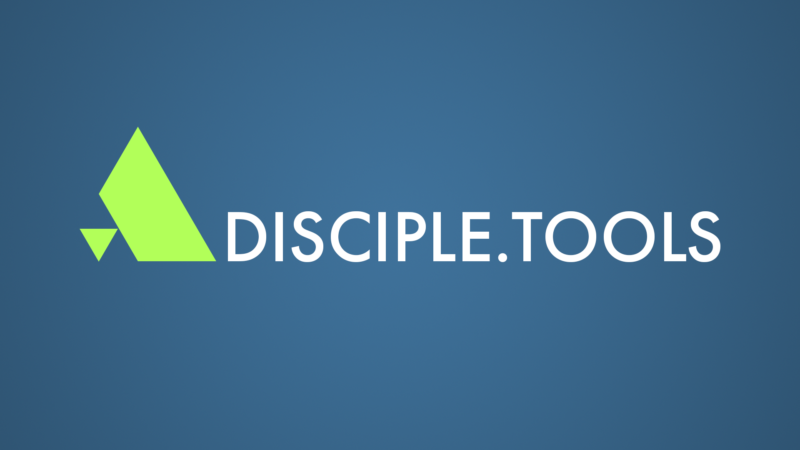
What is a Discovery Bible Study
Discovery Bible Study, or DBS, is a Bible Study method that allows people in a group to learn directly from Scripture instead of having another group member’s interpretation imposed on them.
A DBS is basically a group-based inductive Bible study method.

What is the difference between a Discovery Bible Study and a Traditional One?
The main difference is between these Bible study methods is that leaders and curriculum avoid telling participants what they should take away from Scripture. Each person discovers the text individually within the context of the group as God reveals it to them as they read and pray over it.
DBS is question driven, not teacher driven and participants are guided through the process of discovery and obedience instead of having someone telling them how to obey God.
It’s designed to multiply and pass down consistently to other groups and communities.
Another key difference is that the focus of DBS is not gaining knowledge, but on obeying the little that you know. Obedience based versus knowledge acquisition is huge.

What’s the Goal of Discovery Bible Study
It isn’t the intention for someone to know everything, but for them to be fully obedient to what they know and then trust that God will give more knowledge to those faithful in obedience… then you will probably have to answer the question –

Is the Discovery Bible Study Method Legalistic?
In its truest form, no. You don’t have to prescribe to a specific set of rules, but you are encouraged to obey all that the Spirit is telling you to take action on.
The way someone obeys may look very different to others. This is why it’s not considered to be legalistic.
Also, study group members should want to obey out of love not compulsion or in an effort to earn salvation or grace.
Love inspired obedience runs in tension between apathy and legalism. It’s better to live in that tension than to not act, obey or be legalist.

How to Do a Discovery Bible Study
To conduct a Discovery Bible Study, start by gathering a group of friends or family members in a natural and comfortable setting. Encourage the participation of non-believers whenever possible in order to spread the Gospel.
Non-believers can participate in the discovery process, obey what they learn, and grow even before believing to look more and more like Jesus.
As a facilitator, let the scripture take the lead and guide the discussion. Foster a collaborative environment where everyone can contribute and discover insights together. Emphasize practical obedience and sharing, concluding each session with actionable response steps and plans for sharing the lesson.
After an initial meeting, begin all others with a reflection upon the time since the last meeting and ask members if they were able to obey and share.

What if a Group Member Didn’t Do What They Committed To?
If someone didn’t obey and share what was assigned to them in the previous meeting, it’s important to check and see why. Maybe they didn’t have an opportunity or didn’t know how. The group can help this member overcome this obstacle for the next meeting.

Key Principles of Discovery Bible Study
The fundamental principles behind this dynamic Bible study approach are:
- To engage in authentic group studies:
Foster a natural environment by gathering friends and family to delve into meaningful discussions. Aim to include a majority of non-believers within these communities. - To foster discovery instead of teaching:
Step back as a facilitator, allowing the scriptures to guide the conversation. Encourage participants to actively contribute, avoiding the temptation to provide ready-made answers. - To nurture discipleship that leads into transformation:
Following the footsteps of Jesus, prioritize leading others into action before complete comprehension. Encourage individuals to obey Jesus from the outset, embracing the mission. - To prioritize practical obedience and sharing:
It’s not just about acquiring knowledge; it’s about obediently following God’s teachings. Conclude each session with actionable steps and a plan to share the lesson, multiplying its impact.
By adhering to these principles, you can create an engaging and impactful Bible study experience that resonates with individuals seeking spiritual growth.

What are the Discovery Bible Study Questions
This Bible studying method revolves around asking questions and finding their answer in the Bible. Here are some questions you can ask while reading a passage.
- What did you discover about God in this passage?
- What did you discover about people in this passage?
- What do you like about this passage?
- Is there something you don’t understand about this passage?
- What can you change about yourself based on this knowledge?
- How will you commit to obey this passage this week?
- Who will you share what you have learned from this passage with this week?
These are some example questions that can be asked in order to help people get as much as they can from the text.
This list is by no means considered to be exhaustive. These questions can also be modified to fit a specific context.
For example
- “If this is true, what can we learn about our business marketing from this passage?”
- “What should we change about the way we do business to align with this wisdom?”

What is the DBS Method Used For
The Discovery Bible Study (DBS) method is useful for making members of unreached people groups, non-believers, and believers more like Jesus by obeying what he says. With a simple setting and simple questions, it’s easily reproduced anywhere.

What is a Discovery Group
A Discovery Group, or DG, is a group of people that get together to study the Bible using the Discovery Bible Study method.
One can also dive into the Word by starting their own group instead of studying by themselves if they can’t find an existing group to join.

Can I Do DBS By Myself?
Technically, yes… but it might be considered an Inductive Bible Study.
This learning method emphasizes personal exploration and reflection on the scriptures, allowing individuals to delve deeper into the text, ask questions, and seek understanding independently.
Studying the Bible individually with DBS can be a meaningful and insightful practice, fostering personal growth and a deeper connection with the scriptures.
It provides an opportunity for self-reflection, prayer, and the application of biblical principles in one’s own life.
We do, however, recommend the group value due to other’s insights being helpful compared to only our own perception.

How to Start a Discovery Group
An easy way to start your own group is finding a single person that’s interested in learning about God and telling them to invite others they know to join.
These people are sometimes called a Person of Peace.
Suggested Reading: What is a Person of Peace and How to Find One
Having a sense of comfort and familiarity can foster a more open and relaxed environment for studying and discussing religious topics.
This approach emphasizes meeting people where they are and building relationships based on their preferences and comfort level.
It can be a welcoming and non-intimidating way to engage individuals that want to learn more about Jesus.

Location Ideas for Discovery Groups
A Discovery Group can be held practically anywhere where people feel comfortable to study the Word of God. Some examples are (but not limited to):
- Your home
- Coffee Houses
- School or University Cafeterias
- Parks or Outdoor Spaces
- Libraries
- Educational Institutions
- Community Centers
- Co-Working Spaces
- etc.
When choosing a location for your study group, consider factors such as noise levels, accessibility, and the size of your group.
It’s important to select a place where everyone can comfortably engage in the study material and discussions.

Can Discovery Groups be Held Online?
Even though one could technically hold a DG group online, it’s always recommended to meet in person for a deeper bonding experience and for greater connection.
That being said, if meeting physically weren’t an option for whatever reason, it’s always better to have an Online Discovery Group than to not have one altogether.

Helpful Questions for Inviting Someone to a Discovery Bible Group
Here are some helpful questions you can use to invite someone into a discovery group:
- What is your religious background?
- Where are you now in your interest in spiritual things?
- Would you like to know more about this?
- Who else do you know that has spiritual interests similar to yours?
- Would you like to explore this together?
- Where can I meet you?
- Who else can you bring?
As you invite more and more people to dive into the Word of God, you’ll find that certain questions provide better results than others.
We recommend that you use what works for you and adjust accordingly what doesn’t.

Who is Discovery Bible Study for?
DBS is for anyone that’s interested in discovering God directly from His Word. It transcends current knowledge of the Bible, geography, race, social status, and even language! Anyone can dive deeper into the Scriptures using this method.

How Many People Are Necessary for a DBS
Discovery Bible Studies work best in small groups of between four and eight people, but this isn’t a strict condition. You can also study the Bible by yourself if you can’t find others to join your group.

How to Lead a Discovery Bible Study
As a leader or facilitator, you are there to guide participants in finding the answer in God’s Word. Your job is to give people the tools they need to study the Bible, not to know all the answers. This takes some of the pressure off.
It’s better for someone to read all that Scripture says about a topic instead of handing them the answer on a platter. This will help create a habit of searching for answers directly in the Bible.

What is the Difference Between Discovery Bible Study And Inductive Bible Study
Discovery Bible Study places a strong emphasis on studying in natural communities, where friends and family gather, with non-believers often comprising the majority.
Inductive Bible Study is a central part of DBS, but it isn’t necessarily as group-based or focused on the inclusion of non-believers.
DBS encourages facilitators to let the scripture guide the discussion, allowing for a collaborative exploration of insights.
The goal is to cultivate discipleship and obedience to Jesus from the very beginning, with a focus on practical application and sharing the lessons learned.
On the other hand, Inductive Bible Study utilizes a structured approach, emphasizing careful observation of the text, followed by interpretation and application through in-depth analysis and study of historical context, language, and cultural background.
It aims to foster a deep understanding of the Bible’s teachings for personal spiritual growth and development.

Discovery Bible Study Reading Plans
Here is an example Reading Plan from the Zúme Discipleship Course you can use in your group study sessions.
Discover Jesus – Who Jesus is and why He came
- Savior born: Matthew 1:18-25
- Jesus’ Baptism: Matthew 3:7-9, 13-15
- Crazy Man Healed: Mark 5:1-20
- Jesus never Loses Sheep: John 10:1-30
- Jesus Heals the Blind: Luke 18:31-42
- Jesus and Zaccheus: Luke 19:1-9
- Jesus and Matthew: Matthew 9:9-13
- Jesus is the Only Way: John 14:1-15
- Holy Spirit Coming: John 16:5-15
- Last Dinner: Luke 22:14-20
- Arrest and Trial: Luke 22:47-53; 23:13-24
- Execution: Luke 23:33-56
- Jesus is Alive: Luke 24:1-7, 36-47; Acts 1:1-11
- Believing and Doing: Philippians 3:3-9
Make sure to take a deeper look at Zúme Training for more reading plans.

